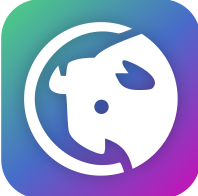Android Native vs Tauri
How does Android Native compare to Tauri?
See the pros and cons of each framework, target platforms and more.
Android Native
Tauri
About
Maintainer
GoogleInitial Release
September 23, 2008
Maintainer
Tauri FoundationInitial Release
June 19, 2022
Community
Languages
- Java
- Kotlin
- Rust
- JavaScript
- TypeScript
- HTML
- CSS
Target Platforms
- ✓ Android
- ✓ Android Auto
- ✓ Android TV
- iOS
- Linux
- macOS
- tvOS
- watchOS
- ✓ Wear Os
- Windows
- ✓ Android
- Android Auto
- Android TV
- ✓ iOS
- ✓ Linux
- ✓ macOS
- tvOS
- watchOS
- Wear Os
- ✓ Windows
✅Strengths
- Official SDK
Native Android apps are built using the official Android development tools, which provide access to the latest features and functionality of the Android platform.
- Performance
Native Android apps perform better than hybrid apps as they have direct access to device hardware and the underlying operating system.
- User Interface
Developers can use built-in UI elements to create a consistent interface that follows the Android design guidelines.
- User Experience
Native Android apps offer a familiar user experience for Android users.
- Ecosystem
Developers can build apps for other Android-based systems like Smartphones, Wear OS, Android TV and Android Auto.
- Large Community
Android has a very large and active developer community, which means there is plenty of documentation, tutorials, and examples available to help developers build apps for Android.
- Cross-platform
Tauri allows developers to write code once and deploy it across multiple platforms, including Mobile and Desktop. This saves development time and effort.
- Web Technologies
Developers can use web technologies like HTML, CSS, and JavaScript to build desktop apps with Tauri, which they may already be familiar with. This can make development faster and more comfortable.
- Native APIs
Tauri provides a bridge between the web technologies and the native APIs by using Rust. This means that developers can access native functionality like the menu bar, tray and much more.
- App Size
Tauri uses the webview component of the operating system during runtime, which means that apps built with Tauri are very small.
- Performance
Apps built with Tauri can be very performant due to use of Rust on the backend. Developers must be careful to avoid performance pitfalls in the frontend, however.
- Plugins
Tauri has a plugin system that allows developers to extend the functionality of their apps. There are many plugins available to help developers build apps faster.
🛑Weaknesses
- Cross-platform
Developers have to build separate apps using a different framework to target other platforms like iOS, Windows and macOS.
- Emerging Community
Tauri is a relatively new framework, which means that there is not a lot of tutorials, and examples available to help developers apps.
- Learning Curve
Despite being popular, even for experienced developers can struggle to learn Rust. Developers can get away building Tauri apps without knowing Rust, but eventually they will need to learn Rust to build more complex features.
